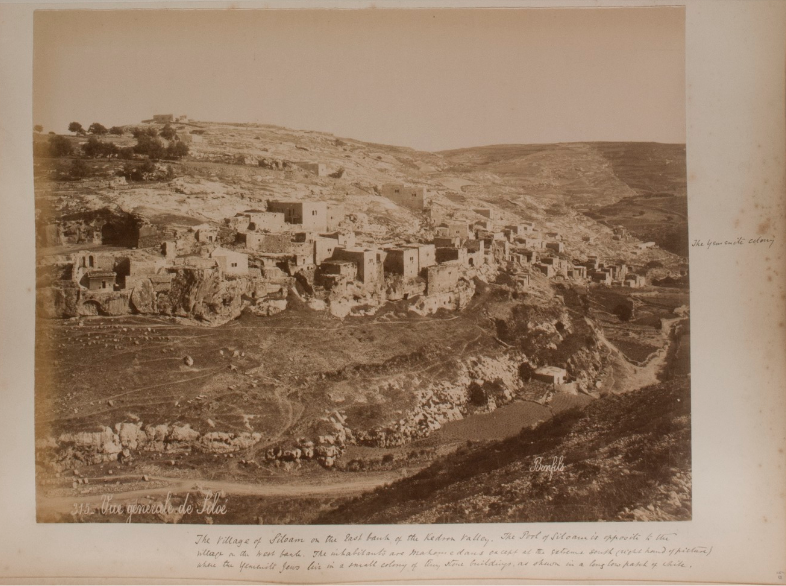The Destruction of Jerusalem in 70 AD, An Event You’re Not Supposed to Study
There is no doubt that today’s Christians are not taught basic biblical doctrines. Indeed, many denominations discourage Biblical scholarship as such is equated with the “quenching” of the spirit.
This, of course, is in direct conflict with the admonition of the Apostle Paul to Timothy to “Study to shew thyself approved unto God, a workman that needeth not to be ashamed.” 2 Tim. 2:15. A “workman”, or a person who devotes time, energy and effort to the task of studying
“And God said, It is a light thing that thou shouldest be my servant…I will also give thee for a light to the Gentiles, that thou mayest be my salvation unto the end of the earth.” Isaiah 49:6.
Today, the inception of the New Testament corresponding with the destruction
of Jerusalem in 70 AD, is not discussed, much less taught in the modern church. Yet, this event is crucial to the understanding of the ministry of Jesus, the New Testament and the establishment of the church. Understanding the fall of Jerusalem and will help understand the
by the prophets and Jesus himself. (Matt. Chapters 22 through 24). Nevertheless, much of modern eschatology (study of “end time” prophesies) is based on the erroneous understanding or basic biblical doctrines regarding the church, Israel and the end times. If you heed
anything written herein, please take a deep plunge and study the Old Testament prophesies pointing to the doing away of the Temple, the era of the Gentiles and the destruction of Jerusalem.
The deity of Jesus the Christ is central to fundamental Christianity. Although we have heard many sermons on His parables, we would be hard press to count the number of times we have hears His words, as documented in Matthew Chapters 22, 23 and 24, corresponding to the
destruction of Jerusalem in 70 AD. This will be hard for many to accept as modern evangelical preachers use these chapters in reference to future events. Needless to say, the historical view of the Christian church held these passages were mostly (albeit no all) fulfilled.
The salient narrative for this discussion begins in Matthew Chapter 22. There, after suffering constant persecution and harassment from the leaders of Israel, the scribes and the Pharisees, Jesus gives a sobering verdict to them and the entire nation. Jesus noted that the
scribes and Pharisees:
•Were self-appointed from God, “sat in Moses seat”. V.2
•Were hypocrites that did not follow what they taught. V.3-4
•Loved the acclamation of man. V.6
•Appropriated titles reserved for God - Rabbi, Master, Father/Papa/Pope. V.7-10.
In the most damning judgment in all scriptures, Jesus proclaimed eight (8) indictments to these leaders, each preceded with a thundering and frightening “Woe”.
1.Woe hypocrites neither go into heaven nor let others go in. V. 13. This verse surely related to these
leaders constant opposition to the work and words of Jesus.
2.Woe for ye devour widow’s houses and for pretense make long prayers. V. 14. The leaders were uncaring to the plight of the widow and the orphans and “dovour[ed]” their houses, i.e., took everything they had.
“Ye shall receive greater damnation”. Woe indeed.
3.Woe for going through great lengths to gain one convert and then mislead him to damnation. V. 15.
4.Woe for honoring the work of man more than the work of God. V. 16-22.
5.Woe for being exact in the tithing of
of material things to your coffers while being stingy in justice, mercy, charity and faith. V. 23-24. “Blind guides, strain at a gnat, and swallow a camel.”
6.Woe for obsessing about appearances without concern for the content of the heart. V. 25-26.
7.Woe for acting
pure while being filled with all types of evil intentions and thoughts. V. 27-28.
8.Woe for building monuments to the prophets your forefathers killed thus providing affirmation of being the children of those who killed them. V. 29-32.
Jesus then explains that God’s patience with the entire Jewish religious system had come to an end as the nation had rejected Him for centuries. Jesus finally invoked the salient condemnation, “Ye serpents, ye generation of vipers, how can you escape the damnation of
hell?” V. 33
Indeed, the very last words of Jesus to the Jewish nation of Israel and its capital city of Jerusalem are recorded in Matthew 23:37:
“O Jerusalem, Jerusalem, thou that killest the prophets, and stonest them which are sent unto thee, how often would I have
gathered thy children together, even as a hen gathereth her chickens under her wings, and ye would not! 38 Look, your house is left to you desolate. 39 For I tell you, you will not see me again until you say, ‘Blessed is he who comes in the name of the Lord.’” Matt. 23:37.
God sent Israel miracle after miracle, prophet after prophet, teacher after teacher and they remained a “stiff necked people” and were referred as such by Moses, Samuel, Jeremiah, Jesus, Peter, et al. How stiffed neck? Take a look at Israel’s rejection of the following:
*Samuel, rejected, persecuted, and despised by his people.
*Isaiah killed by Manasseh, Son of Hezekiah with a wooden saw.
*Joel, Ahaziah the son of Amaziah smote him with a staff upon his head…after two days he died.
*Amos was tortured and killed by the priest of Bethel who drove a nail through his temple.
* Obadiah endured many evil things from Ahab.
*Elijah was opposed and hated all his life.
*Elisha was also opposed and hated.
*Jonah the son of Amittai prophesied that when the Messiah should come, the cities of the Jews would be overturned.
*Micah the Morashthite was slain by Joram the son of Ahab. Micah prophesied concerning the destruction of the temple of the Jews, and the abrogation of the
of the Passover on the death of the Messiah.
*Nahum, hated and rejected because prophesied that when the Messiah should be slain, the vail of the temple should be rent in twain, and that the Holy Spirit should depart from it.
To be con't.




















